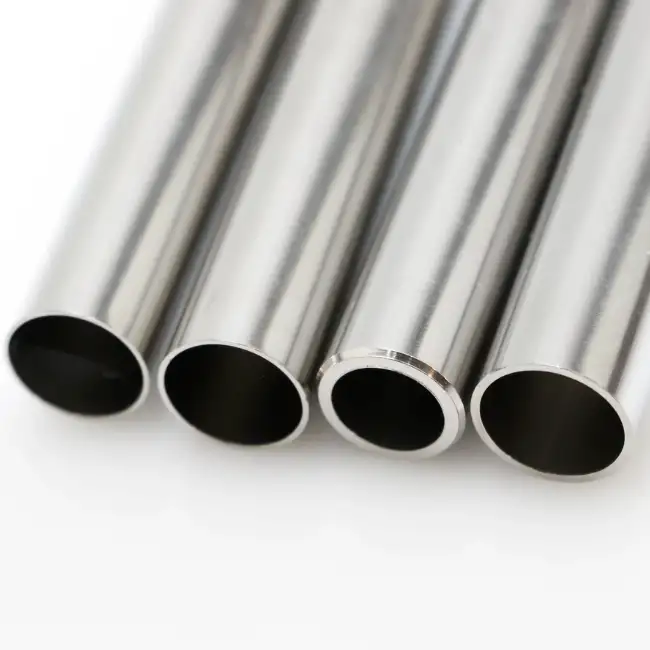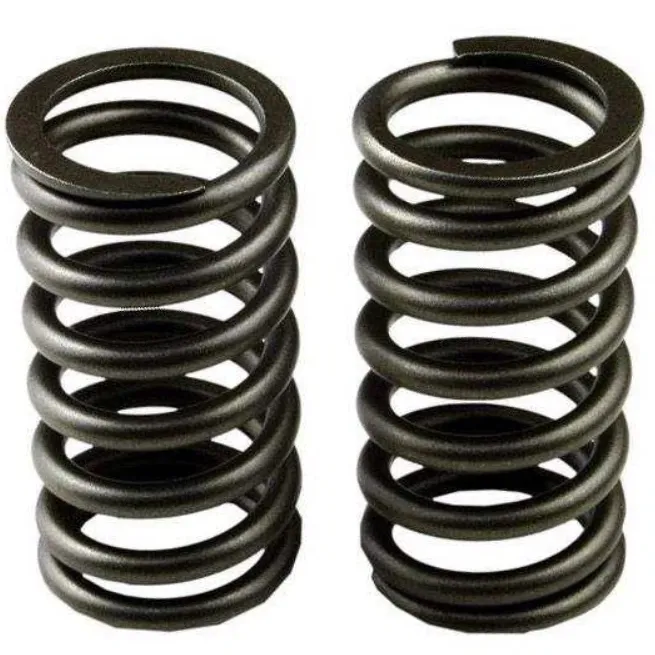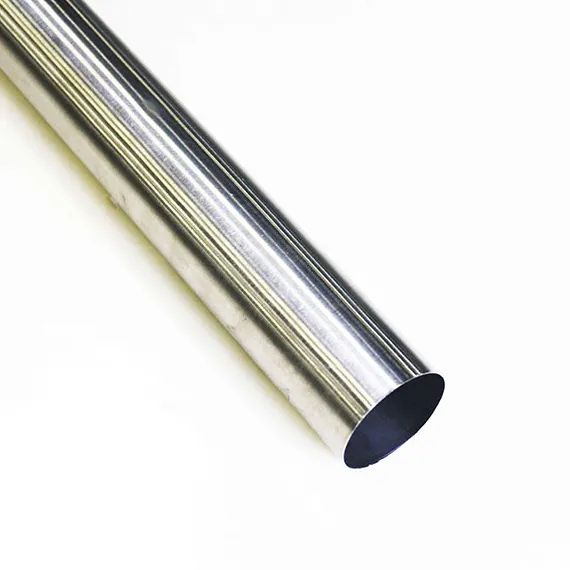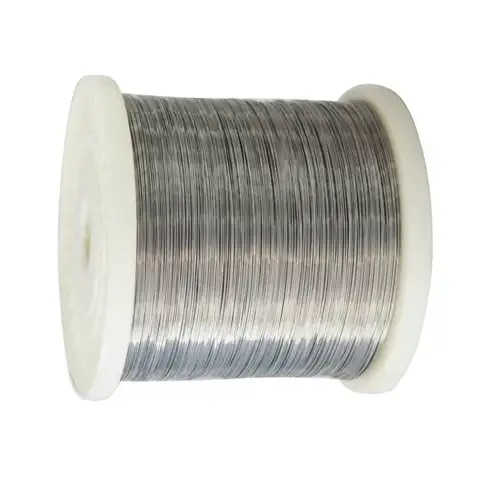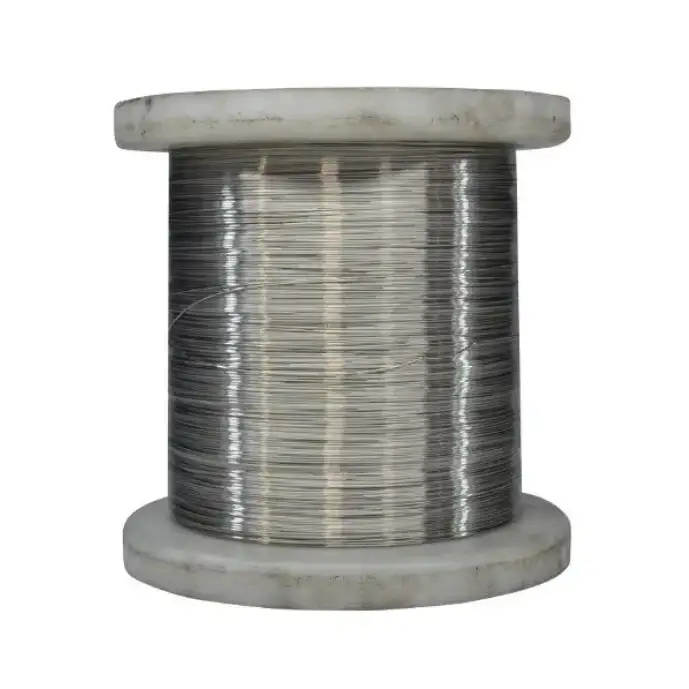We manufacture and supply top‑grade ASTM A312 TP316 stainless steel pipe, engineered to excel in demanding environments. Our TP316 tubing offers exceptional resistance against chlorides and chemicals, ensuring long‑term performance in marine, chemical processing, and food‑grade applications. With precise dimensions, consistent wall thickness, and smooth surface finish, our pipes meet rigorous quality benchmarks.
Key Properties
| Property | Value | Notes |
|---|---|---|
| Material Type | Austenitic Stainless Steel | UNS S31600, EN 1.4401 |
| Manufacturing | Seamless (SMLS) / Welded (ERW, EFW) | Welded types: TIG/SAW processes |
| Density | 7.98 g/cm³ (0.289 lb/in³) | Higher than 304 due to Mo content |
| Max Service Temp | 870°C (1600°F) continuous | Intermittent: 925°C (1700°F) |
| Corrosion Resistance | Exceptional in chlorides, acids, seawater | Mo (2-3%) prevents pitting/crevice corrosion |
| Key Advantage | Superior to TP304 in harsh environments | Ideal for marine, chemical, and high-salinity applications |
Complete Chemical Composition (wt% - ASTM A312)
| Element | Min % | Max % | Typical % | Role |
|---|---|---|---|---|
| Chromium (Cr) | 16.00 | 18.00 | 16.50 | Passive layer formation, oxidation resistance |
| Nickel (Ni) | 10.00 | 14.00 | 12.00 | Austenite stability, ductility |
| Molybdenum (Mo) | 2.00 | 3.00 | 2.50 | Critical for chloride resistance |
| Carbon (C) | - | 0.08 | 0.05 | Strength; ≤0.03% for welding (use TP316L) |
| Manganese (Mn) | - | 2.00 | 1.50 | Deoxidation, hot workability |
| Silicon (Si) | - | 1.00 | 0.50 | Scale resistance, deoxidation |
| Phosphorus (P) | - | 0.045 | 0.035 | - |
| Sulfur (S) | - | 0.030 | 0.015 | Machinability (limited in pipes) |
| Iron (Fe) | Balance | - | ~67.00 | Base metal |
Notes:
-
TP316L variant: C ≤ 0.03% for welded assemblies to avoid carbide precipitation.
-
TP316H variant: C ≥ 0.04% for enhanced high-temperature strength.
Mechanical Properties (Annealed Condition - ASTM A312)
| Property | Seamless Pipe | Welded Pipe | Test Standard |
|---|---|---|---|
| Tensile Strength | ≥515 MPa (75 ksi) | ≥485 MPa (70 ksi) | ASTM E8 |
| 0.2% Yield Strength | ≥205 MPa (30 ksi) | ≥170 MPa (25 ksi) | ASTM E8 |
| Elongation (50mm) | ≥40% | ≥35% | ASTM E8 |
| Hardness (Max) | 90 HRB | 90 HRB | ASTM E18 |
| Pressure Rating (Sch 40S) | 180 bar @ 38°C | 120 bar @ 38°C | ASME B16.34 |
Standard Sizes & Weights (ASME B36.19 / ASTM A312)
| NPS (in) | DN (mm) | OD (mm) | Schedule | Wall Thickness (mm) | Weight (kg/m) |
|---|---|---|---|---|---|
| 1/8" | 6 | 10.29 | 40S | 1.24 | 0.28 |
| 1/4" | 8 | 13.72 | 40S | 1.65 | 0.49 |
| 1/2" | 15 | 21.34 | 40S | 2.11 | 1.00 |
| 1" | 25 | 33.40 | 40S | 3.38 | 2.50 |
| 2" | 50 | 60.33 | 40S | 3.91 | 5.44 |
| 4" | 100 | 114.30 | 40S | 6.02 | 15.97 |
| 6" | 150 | 168.28 | 40S | 7.11 | 28.15 |
| 8" | 200 | 219.08 | 40S | 8.18 | 42.55 |
| 10" | 250 | 273.05 | 40S | 9.27 | 60.58 |
Extended Size Range:
-
OD: 57 mm to 1,626 mm (Welded), 6 mm to 457 mm (Seamless)
-
Wall Thickness: 1.2 mm to 60 mm (Welded), 0.5 mm to 25 mm (Seamless)
Weight Calculation Formula:
Metric (kg/m) = 0.02466 × Wall Thickness (mm) × [OD (mm) - Wall Thickness (mm)] Imperial (lb/ft) = 10.69 × Wall Thickness (in) × [OD (in) - Wall Thickness (in)]
Example (2" Sch 40S):
0.02466 × 3.91 × (60.33 - 3.91) = 5.44 kg/m
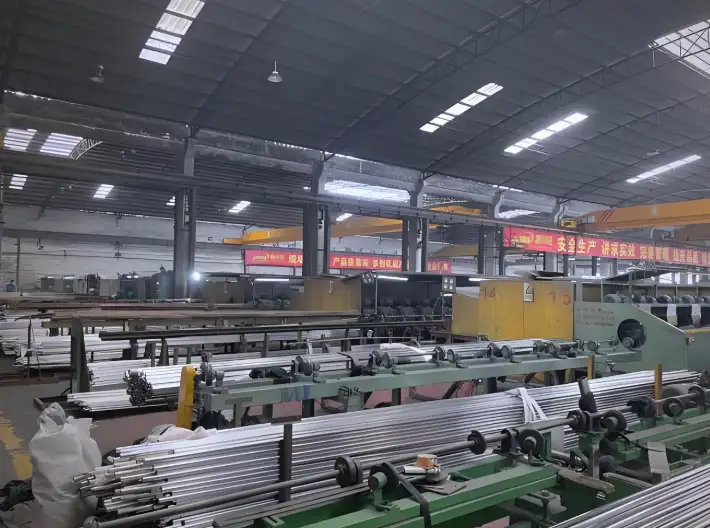
Manufacturing Processes & Applications
Production Methods
| Type | Key Features | Applications |
|---|---|---|
| Seamless | Cold/hot rolled, no weld seam, high-pressure integrity | Oil & gas wellheads, boilers |
| Welded (TIG/SAW) | Cost-effective, large diameters (up to 1,626 mm) | Structural, low-pressure fluids |
| Surface Finishes | Pickled, polished (Ra ≤0.8μm), electropolished | Sanitary (pharma/food) |
Key Industries & Uses
| Industry | Applications | Preferred Type |
|---|---|---|
| Marine Engineering | Seawater pipelines, offshore platforms | Seamless (Sch 80/160) |
| Chemical Processing | Acid/alkali transport, reactors | Welded/Seamless |
| Pharmaceutical | Bioreactors, ultra-pure fluid lines | Electropolished welded |
| Oil & Gas | Downhole tubing, heat exchangers | Heavy-wall seamless |
Technical Notes
-
Tolerances (ASTM A999):
-
OD: ±0.1mm (for ≤1.5" NPS) to ±0.8% (for >18" NPS)
-
Wall Thickness: +20%/-12.5%
-
-
Global Equivalents:
Region Standard Grade EU EN 10216-5 1.4401 Japan JIS G3459 SUS316TP China GB/T 14976 0Cr17Ni12Mo2 -
Certification: Mill Test Reports (MTR) per EN 10204 3.1 mandatory for pressure applications.
Engineering Summary:
ASTM A312 TP316 stainless steel pipes excel in chloride-rich and high-temperature environments. Key specs: 16-18% Cr, 10-14% Ni, 2-3% Mo, density 7.98 g/cm³. Available in seamless/welded types, sizes 1/8"–24" (DN6–DN600), weights from 0.28 kg/m (1/8" Sch 40S) to 60.58 kg/m (10" Sch 40S). Use TP316L for welded systems.
Standards Compliance: ASTM A312/A312M-24, ASME B36.19, ISO 1127.
Critical Notice: Unsuitable for sulfuric acid >10% concentration — use super-austenitic grades (e.g., 904L).
global price comparison 2025
| Region / Supplier | Form | Price (USD per ton) | Notes |
|---|---|---|---|
| China (MWalloys) | Seamless/Welded | 1,000 – 2,600 / ton | Varies by size and order quantity |
| India (Reliable Pipes) | Seamless | 1,200 – 10,000 / ton FOB | Broad range due to size/spec variation |
| USA–Saudi (Oshwin Overseas) | Sch. 40S Welded | ~ 5,000 / ton (e.g. ½″ @ $5.96/ft = ~$5,900/ton) | |
| India (MBM Tubes) | SS 316L Welded (Sch40S) | ~ $4/kg → ~ 4,000 / ton | Base price starts at $4/kg |
| India (Fastwell) | ERW Seamless/Welded | ~ $5,000 / ton | Reported as export price |
| Australia/EU OEMs | Seamless (Norsk, Sandvik, etc.) | 5,840 – 10,105 / ton | Consistent across premium mills |
| Global OEMs (MT Stainless) | Seamless Pickled/Annealed | 3,900 – 4,900 / ton | Quality surface finish included |
📊 Analysis & Insights
-
Price ranges widely depending on region, form (seamless vs welded), coating/finish, and order quantity/FOB terms.
-
China offers highly competitive mid-range pricing (~$1K–2.6K/ton), ideal for large-volume, cost-sensitive projects.
-
India varies: general base
$4/kg ($4K/ton), but can spike to $10K/ton for premium or large-size seamless orders. -
Premium mills in Europe/Australia supply top-tier quality (Norsk, Sandvik) for luxury-grade projects—prices up to ~$10K/ton.
-
U.S.–Saudi welded pipe (Sch. 40S) averages around $5K–6K/ton including finishing.
Manufacturing Processes: Seamless vs. Welded
We offer both seamless and ERW‑welded TP316 pipes:
-
Seamless: Extruded billets reduce risk of longitudinal defects. Preferred for high‑pressure service.
-
Welded (ERW): Cost‑effective for larger diameters; post‑weld annealing restores corrosion resistance.
Each method includes nondestructive testing (UT, hydrostatic) to certify integrity.
Corrosion Resistance and Application Scenarios
TP316 thrives where chlorides prevail—coastal buildings, desalination plants, and food processing. Its resistance is quantified by a Pitting Resistance Equivalent Number (PREN) of ~23, outperforming TP304’s ~18. Do you require piping for brine? TP316 is the choice. Or perhaps for pharmaceutical steam lines? TP316’s purity and weldability serve well.
Dimensional Standards and Tolerances
ASTM A312 specifies OD/R thickness tolerances (Table 2):
| Nominal Size (in) | OD (in) | Wall (min) (in) | Wall (max) (in) |
|---|---|---|---|
| ½" | 0.840 | 0.065 | 0.083 |
| 1" | 1.315 | 0.083 | 0.109 |
| 2" | 2.375 | 0.095 | 0.154 |
Sample OD and wall‑thickness tolerances per ASTM A312.
Tolerance adherence ensures interchangeability and leak‑proof assemblies.
Comparison Table: TP316 vs. TP304 vs. TP316L
| Property | TP304 | TP316 | TP316L |
|---|---|---|---|
| C max (%) | 0.08 | 0.08 | 0.03 |
| Mo (%) | — | 2–3 | 2–3 |
| PREN | ~18 | ~23 | ~23 |
| Minimum Yield (MPa) | 215 | 205 | 205 |
| Applications | General | Marine/Chemical | Very corrosive |
Surface Finishes and Quality Assurance
Our pipes feature finishes per ASTM A312:
-
2B: Cold‑rolled, annealed; moderate finish.
-
BA: Bright annealed; smoother surface.
-
Pickled & Passivated: Enhanced corrosion resistance.
Quality checks include dimensional inspection, surface roughness measurement (Ra ≤ 0.8 µm), and positive material identification (PMI).
Industry‑Specific Uses and Case Examples
We’ve supplied TP316 piping to:
-
A North Sea platform—operating under 60 bar, 120 °C.
-
A dairy factory—ensuring sanitary fluid transfer.
-
A semiconductor plant—ultrapure water systems.
Each project required custom spool fabrication and documentation packages.
Handling, Storage, and Welding Guidelines
To preserve passivation:
-
Store off the ground, avoid contact with carbon steel.
-
Clean with neutral soap; rinse thoroughly.
Welding: use matching ER316 filler; employ post‑weld passivation to restore corrosion protection.
FAQS
-
How does MWaolloys ensure the purity of its TP316 pipe for pharmaceutical and food‑grade systems?
We implement stringent Positive Material Identification (PMI) on every heat to verify alloy chemistry. Post‑fabrication, each length undergoes pickling and passivation per ASTM A967 to remove free iron and restore the protective chromium‑oxide film—critical for hygienic applications. -
What maintenance practices maximize the service life of TP316 piping in coastal environments?
Regularly rinse surfaces with fresh water to remove salt deposits, inspect weld seams for undercut, and apply a mild nitric‑citric passivation treatment annually. These steps prevent pitting and crevice corrosion, extending service life by over 20 years. -
Can MWaolloys TP316 pipe be welded in the field without compromising corrosion performance?
Yes. We recommend ER 316 L filler rod and a controlled TIG or MIG process. After welding, a brief post‑weld anneal at 600 °C followed by citric passivation will recrystallize the heat‑affected zone and restore full chloride resistance. -
What certifications accompany each shipment of TP316 pipe from MWaolloys?
Every delivery includes:-
Mill test report (MTR) per ASTM A312 Annex A1
-
PMI certificate
-
Nondestructive test summary (UT/hydrostatic)
-
Dimensional inspection report
-
Passivation certificate per ASTM A967
-
-
How do you select between seamless and welded TP316 pipe for my project?
For high‑pressure or cyclic‑stress service (over 20 bar), seamless is preferred due to uniform grain structure. For large diameters or budget constraints, ERW‑welded offers cost savings—with post‑weld annealing to match seamless corrosion resistance. -
What turnaround times can I expect for custom‑length TP316 orders?
Standard cut‑to‑length orders ship within 5–7 business days from our regional stock. For prefabricated spools or special machining (e.g., flanges, bevels), lead time is typically 10–14 business days, depending on complexity and destination.

